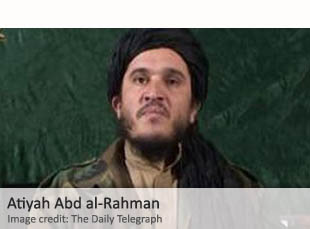CIA funds given to Afghan officials ended up in al-Qaeda coffers
March 16, 2015 Leave a comment
 By IAN ALLEN | intelNews.org
By IAN ALLEN | intelNews.org
Millions of dollars given by the United States Central Intelligence Agency to Afghanistan following the 2001 American invasion ended up in the hands of al-Qaeda, according to documents found in the personal archive of the organization’s founder, Osama bin Laden. The documents were confiscated by US Special Forces from bin Laden’s hideout in Abbottabad, Pakistan, where he was killed in 2011. They were declassified this week for use as evidence in the trial of Abid Naseer, a Pakistani citizen accused of planning a series of suicide bombings in Britain and the US. The New York Times, which cited “interviews with Afghan and Western officials”, said the documents show that Washington “has sometimes inadvertently financed the very militants it is fighting”. The paper attributed this to poor oversight of the billions of dollars in cash payments that the CIA supplied to the corrupt Afghan government of Hamid Karzai for over a decade.
The letters used in Naseer’s trial concern $5 million paid as ransom to al-Qaeda by the Afghan government in 2010, in exchange for the release of Abdul Khaliq Farahi, Afghanistan’s consul general in the Pakistani city of Peshawar. Farahi had had been abducted by militants two years earlier and delivered to the hands of al-Qaeda, who promptly contacted Kabul demanding payment. In the spring of 2010, the Afghan government agreed to pay a $5 million ransom for the kidnapped diplomat’s release. According to The Times, at least $1 million in ransom money came from the several millions of dollars in cash that the CIA would deliver each month to the presidential palace in Kabul. The other $4 million came from Iran as well as from a number of Arab oil kingdoms, says the paper.
In June 2010, almost as soon as the funds were delivered to al-Qaeda’s hands, the organization’s accounts manager, Atiyah Abd al-Rahman, wrote to bin Laden: “Allah blessed us with a good amount of money this month”. The al-Qaeda founder responded by expressing surprise that the US would have allowed a ransom to be paid to the militant group, and cautioned al-Rahman to check the cash for signs of poison or radiation that may have been planted there by the Americans. It appears, however, that no trap had been set up by the CIA, and al-Qaeda was able to use the funds for weaponry and routine operational expenses. The Times said it asked the CIA whether officials at Langley were aware of the ransom paid to al-Qaeda by the Afghan government, but the Agency declined comment.






